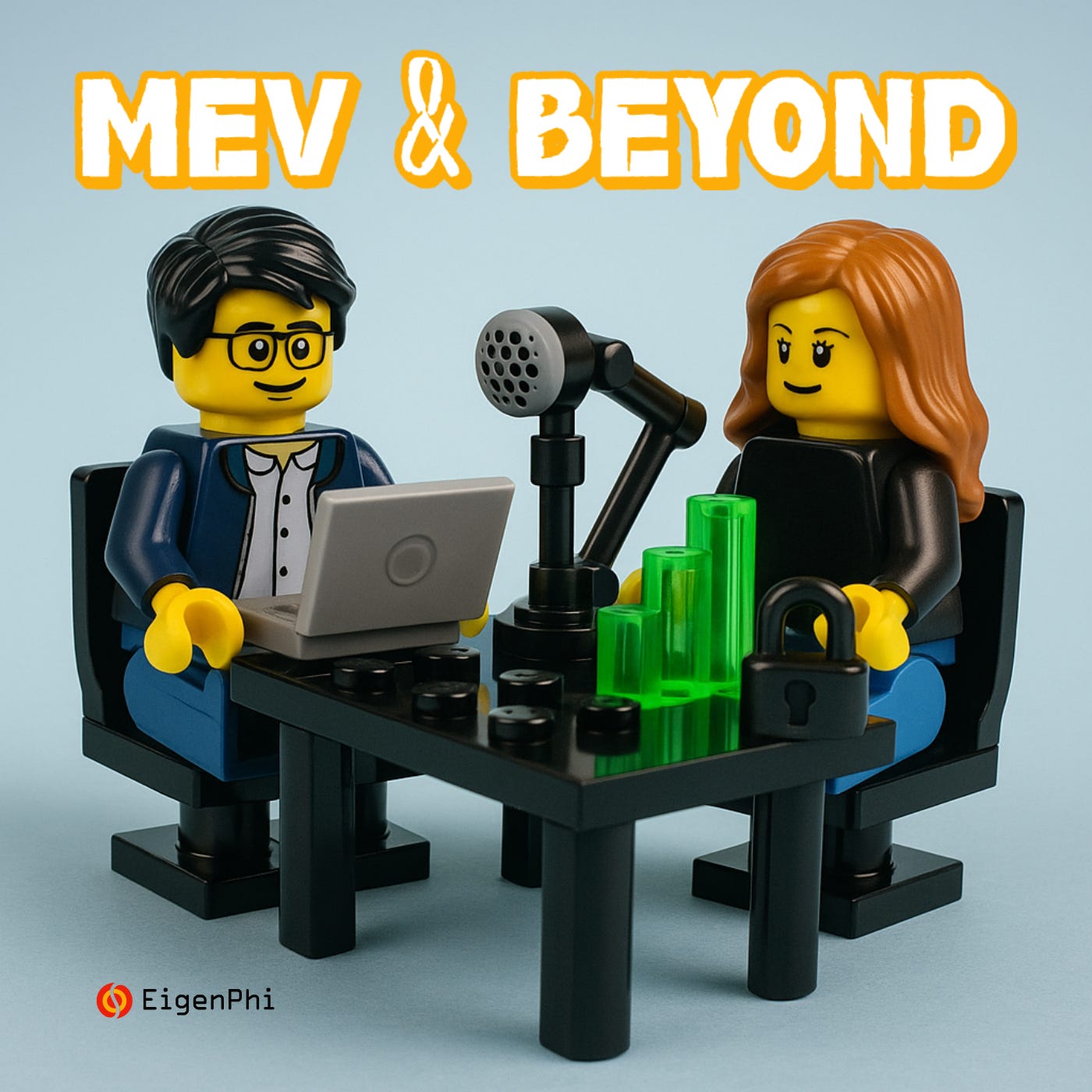MEV Spaces

MEV Spaces
Podcast Description
MEV Space brings together the sharpest minds in crypto to dissect the evolving MEV landscape. eigenphi.substack.com
Podcast Insights
Content Themes
The podcast focuses on a variety of critical themes in the crypto space with episodes exploring topics such as partial block building, MEV collection techniques, transaction flow guarantees, and the integration of hardware in decentralization. Notable episode examples include discussions on how preconfirmation protocols are reshaping Ethereum's transaction flow and the implications of MEV dynamics on market competition.

MEV Space brings together the sharpest minds in crypto to dissect the evolving MEV landscape and beyond.
Myth: “MEV and rug-pulls are separate.” False. This case shows a triple-evil sandwich: a taxed token, a 94-layer sandwich, and a timed rug in the same block. One operator ran the token, the pool, and the bot.
💡 What you’ll learn
* The triple-evil model: taxed token → layered sandwich → mint-and-drain rug
* How malices are done
🔍 CASE STUDY DETAILS
This is educational content only. We do not endorse MEV bots or provide financial advice. Always DYOR (Do Your Own Research).
You can subscribe to MEV Spaces via Spotify, Apple Podcasts, Pocket Casts, and YouTube Podcast.
Wonder if you have any misconceptions about MEV? Download our latest free e-book: MEV Myth Busters – From Microstructures to Macro Impacts.
Follow us via these to dig more into the hidden wisdom of DeFi:
EigenTx | Website | Discord | Twitter | YouTube | Substack | Medium | Telegram
This is a public episode. If you would like to discuss this with other subscribers or get access to bonus episodes, visit eigenphi.substack.com

Disclaimer
This podcast’s information is provided for general reference and was obtained from publicly accessible sources. The Podcast Collaborative neither produces nor verifies the content, accuracy, or suitability of this podcast. Views and opinions belong solely to the podcast creators and guests.
For a complete disclaimer, please see our Full Disclaimer on the archive page. The Podcast Collaborative bears no responsibility for the podcast’s themes, language, or overall content. Listener discretion is advised. Read our Terms of Use and Privacy Policy for more details.